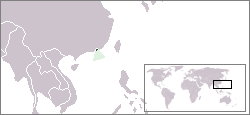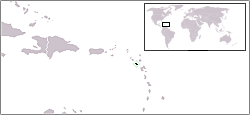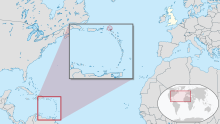
Lesbian, gay, bisexual and transgender (LGBT) people in the Bahamas have limited legal protections. While same-sex sexual activity is legal in the Bahamas, there are no laws that address discrimination or harassment on the account of sexual orientation or gender identity, nor does it recognize same sex unions in any form, whether it be marriage or partnerships. Households headed by same-sex couples are also not eligible for any of the same rights given to opposite-sex married couples.

Lesbian, gay, bisexual, and transgender (LGBT) rights in Cyprus have evolved in recent years, but LGBTQ people still face legal challenges not experienced by non-LGBT residents. Both male and female expressions of same-sex sexual activity were decriminalised in 1998, and civil unions which grant several of the rights and benefits of marriage have been legal since December 2015. Conversion therapy was banned in Cyprus in May 2023. However, adoption rights in Cyprus are reserved for heterosexual couples only.

Lesbian, gay, bisexual, and transgender (LGBT) rights in Andorra have advanced significantly in the 21st century, and are now considered generally progressive. Civil unions, which grant all the benefits of marriage, have been recognized since 2014, and discrimination on the basis of sexual orientation is constitutionally banned. The General Council passed a bill on 21 July 2022 that would legalize same-sex marriage in 2023, and convert all civil unions into civil marriage. In September 2023, Xavier Espot Zamora, the Prime Minister of Andorra, officially came out as homosexual.

Lesbian, gay, bisexual, and transgender (LGBT) people in San Marino may face legal challenges not experienced by non-LGBTQ residents. Both male and female same-sex sexual activity are legal in San Marino, but households headed by same-sex couples are not eligible for the same legal protections available to opposite-sex couples.

The rights of lesbian, gay, bisexual, and transgender (LGBT) people in Aruba, a constituent country of the Kingdom of the Netherlands, have evolved remarkably in the past decades. Both male and female same-sex sexual activity are legal in Aruba.

Lesbian, gay, bisexual, and transgender (LGBT) persons in the British Virgin Islands face legal challenges not experienced by non-LGBTQ residents. Same-sex sexual activity has been legal in the British Virgin Islands since 2001.

Lesbian, gay, bisexual, and transgender (LGBT) people in Bermuda, a British Overseas Territory, face legal challenges not experienced by non-LGBT residents. Homosexuality is legal in Bermuda, but the territory has long held a reputation for being homophobic and intolerant. Since 2013, the Human Rights Act has prohibited discrimination on the basis of sexual orientation.

Lesbian, gay, bisexual, and transgender (LGBTQ) people in Hong Kong may face legal challenges not experienced by non-LGBT residents.

LGBTQ+ rights in the Cayman Islands are regarded as some of the most progressive in the Caribbean. While the British territory still has a long way to go, it continues to relax its stance on this subject. Both male and female types of same-sex sexual activity are legal in the Cayman Islands. Same-sex unions became legal in 2020.

Lesbian, gay, bisexual, and transgender (LGBT) persons in Montserrat face legal challenges not experienced by non-LGBTQ residents. Same-sex sexual activity has been legal in Montserrat since 2001.

Lesbian, gay, bisexual, and transgender (LGBT) persons in the British Overseas Territory of the Turks and Caicos Islands face legal challenges not experienced by non-LGBTQ residents. Same-sex sexual activity has been legal in the Turks and Caicos Islands since 2001, and discrimination based on sexual orientation is constitutionally banned.

Lesbian, gay, bisexual, and transgender (LGBT) people in Seychelles face legal challenges not experienced by non-LGBTQ residents. Same-sex sexual activity has been legal since 2016, and employment discrimination on the basis of sexual orientation is banned in Seychelles, making it one of the few African countries to have such protections for LGBT people. However, LGBT people may nonetheless face stigmatization among the broader population.
Australia is one of the most LGBTQ-friendly countries in the world. In a 2013 Pew Research poll, 79% of Australians agreed that homosexuality should be accepted by society, making it the fifth most supportive country in the survey behind Spain (88%), Germany (87%), and Canada and the Czech Republic. With a long history of LGBTQ rights activism and an annual three-week-long Mardi Gras festival, Sydney is considered one of the most gay-friendly cities in the world.

Lesbian, gay, bisexual, and transgender (LGBT) rights in the British Crown dependency of Guernsey have improved significantly in the past decades. Same-sex sexual activity for both men and women is legal in Guernsey. Same-sex marriage has been legal since 2 May 2017 in Guernsey, and since 14 June 2018 in its dependency, Alderney. Legislation approving the legalisation of same-sex marriage in its other dependency, Sark was given royal assent on 11 March 2020. Guernsey is the only part of the British Isles to have never enacted civil partnership legislation, though civil partnerships performed in the United Kingdom were recognised for succession purposes. Since April 2017, same-sex couples can adopt in the entire Bailiwick. Discrimination based on sexual orientation and gender identity has been banned since 2004. Transgender people have been able to legally change gender since 2007.

In the U.S. Virgin Islands, Lesbian, gay, bisexual, and transgender (LGBT) rights have evolved substantially in recent years. Same-sex sexual activity has been legal since 1985. The region also provides explicit legal protections against discrimination for LGBTQ residents since December 2022. Following the Supreme Court's ruling in Obergefell v. Hodges on June 26, 2015, which found the denial of marriage rights to same-sex couples unconstitutional, same-sex marriage became legal in the islands.

Lesbian, gay, bisexual, and transgender (LGBT) persons in the British Overseas Territory of Akrotiri and Dhekelia enjoy most of the same rights as non-LGBT people.

Lesbian, gay, bisexual, and transgender (LGBTQ) people in Curaçao have similar rights to non-LGBT people. Both male and female same-sex sexual activity are legal in Curaçao. Discrimination on the basis of "heterosexual or homosexual orientation" is outlawed by the Curaçao Criminal Code.

Lesbian, gay, bisexual, and transgender (LGBT) people in Sint Maarten may face legal challenges not experienced by non-LGBTQ residents. Both male and female same-sex sexual activity are legal in Sint Maarten, a constituent country of the Kingdom of the Netherlands, but same-sex marriage is not legal. Same-sex couples with Dutch nationality must travel to the Netherlands to get married, and that will not provide the rights of marriage in Sint Maarten.

Lesbian, gay, bisexual, and transgender (LGBT) people in the British Overseas Territory of the Pitcairn Islands enjoy most of the same rights as non-LGBT people. Same-sex sexual activity is legal, discrimination based on sexual orientation is constitutionally outlawed and same-sex marriage has been legal since 14 May 2015.
This is a list of notable events in the history of LGBT rights that took place in the year 2016.




















